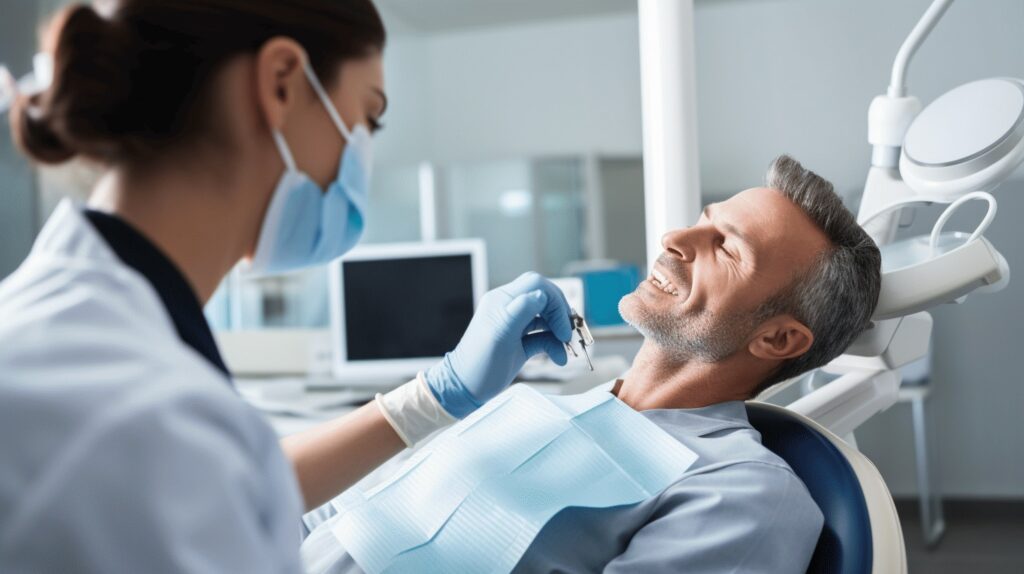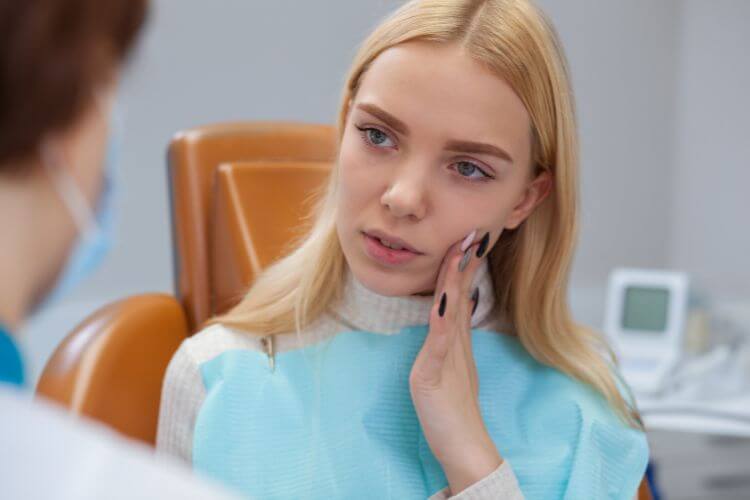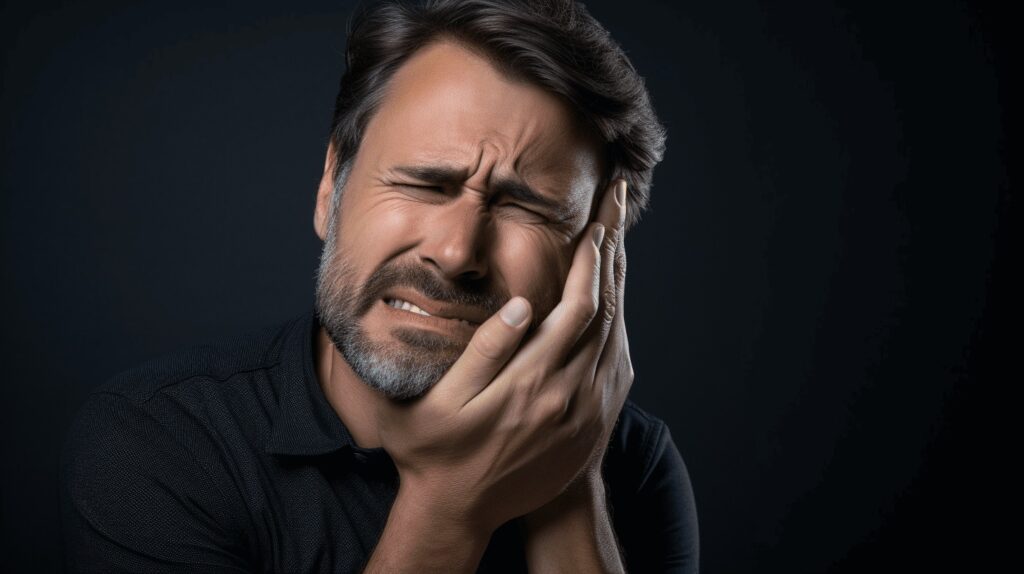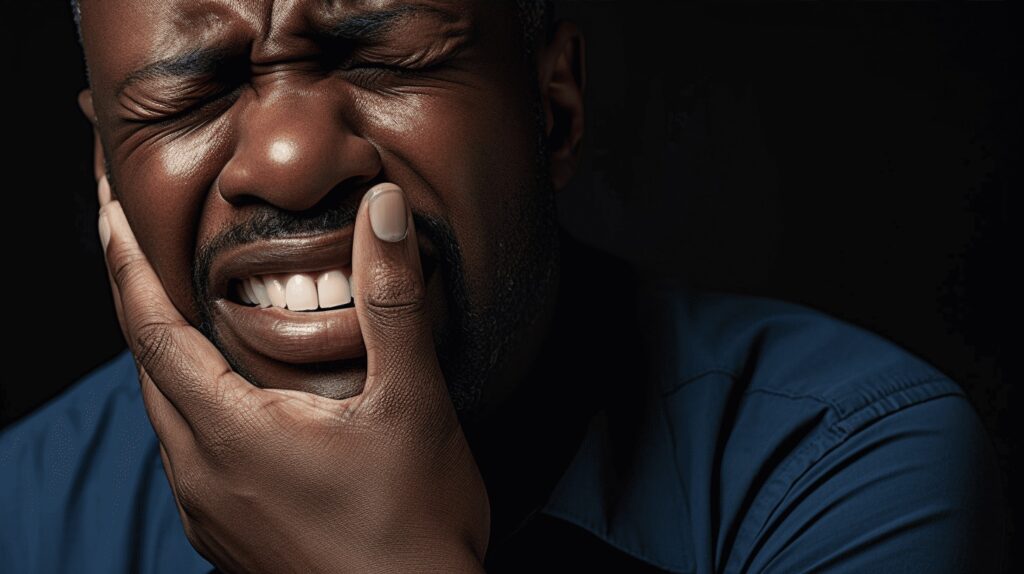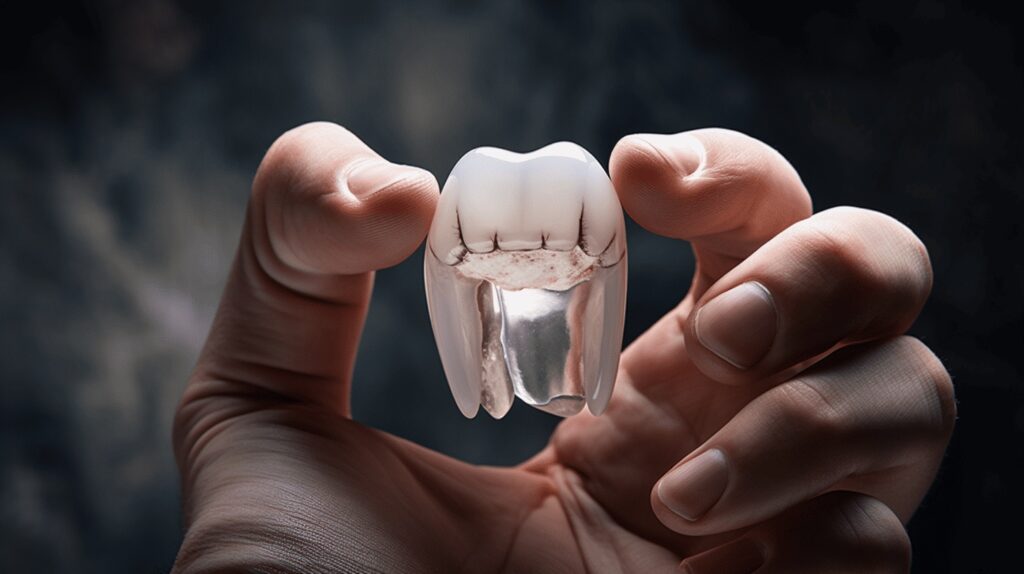“Can you feel that throbbing pain in your tooth? Wait, don’t ignore it! It could be more than just a minor discomfort.
Dental emergencies, believe it or not, are more common than you might think. They don’t just cause physical pain, they can also place you under immense stress, draining your emotional well-being, and potentially cracking a dent in your finance. 😰
Dental emergencies can range from a midnight toothache, a sports injury damaging your teeth, to severe infections that might endanger your overall health. And did we mention how excruciating the pain can be? Teeth are no small matter, we use them multiple times a day to chew, to talk, to smile. Any trouble in dental paradise can hurl your life into chaos. 😥
But do not fear! That is exactly why this article is here. We want to share with you critical insights about dental emergencies, helping you understand why they are a pressing issue, how to identify them, and why quick, professional help is crucial. Plus, we will give you some pro-tips on how to prevent and manage dental problems to keep that smile healthy and radiant. 😁
So, buckle up as we embark on this informative journey. By the end of it all, we hope you’ll never overlook a toothache or delay your dental visit. Because in our world, every tooth matters! 🦷
Table of Contents
Prevalence and Impact of Dental Emergencies
We all understand the discomfort and distress that dental emergencies can bring. However, do we truly comprehend the prevalent frequency of these troubles and the economic impact they present? Well, it’s time we did.
Dental Emergencies Statistics
Startling as it may be, dental emergencies account for over 2 million visits to the emergency department annually. This amounts to approximately 615.5 visits per every 100,000 individuals across the nation. The gravity of these numbers reiterates the urgency for everyone to be equipped with adequate knowledge on how to effectively handle dental emergencies.
Moreover, did you know that emergency room visits for avoidable dental conditions constitute between 1.15% and 2.5% of all emergency room visits? This implies that a significant proportion of emergency hospital resources are used up by conditions that could be easily prevented with regular dental care.
Economic Impact
But the implications extend beyond just immediate health concerns. The ripple effects on our economy are considerable. Let’s picture this:
- The loss resulting from unplanned dental care due to emergencies is over 34 million school hours each year, and that’s just for children.
- The loss in productivity infiltrates the work sphere too, costing the US economy over a staggering $45 billion!
These figures are not just alarming; they are a wake-up call. Every toothache dismissed, every routine dental checkup postponed, contributes to this. It reaffirms that our oral health is not an island but a vital contributor to our overall well-being and societal productivity.
In light of all this, it’s clear that we cannot afford to neglect our dental health. Not only because we wish to avoid the agonizing pain of a toothache or the fear of a dental visit, but because the collective impact on our society, our economy, and indeed, our lives is just too great.
🦷Be mindful of your teeth.🦷 Be proactive with dental care. 🦷Be a part of the solution.
Global Perspective and Readiness to Address Dental Emergencies
The world of dentistry is rapidly evolving, more so now than ever before. With technological advancements and up-to-the-minute research, dental professionals are continually innovating and expanding their scope of expertise. This drive for improvement is essential, especially when it comes to dental emergencies. But just how ready and equipped are we, from a global standpoint, to address these urgent cases? Well, let’s dive in and explore.
Among the myriad of health concerns that globally affect individuals, oral health issues indeed stand tall. In fact, an astonishing 3.5 billion people – approximately 45% of the world’s population – are plagued by some form of oral disease. 🌍 These statistics pose more than just a considerable worry, they reiterate the imminent need for us as a collective society to harness our resources and capabilities, ensuring that we are in a position to effectively address dental emergencies.
Surprisingly, the prevailing pandemic has proven that patients are more than ready to address oral health problems head-on. Over the past year, 63% of individuals have bravely faced the prospect of a dental visit, despite the looming risk of contagion. These statistics paint a hopeful picture, indicating that the willingness to seek urgent dental help remains undeterred.
However, readiness to seek dental care doesn’t equate to understanding when to do so. Recognizing the need for immediate treatment is key, and that’s why knowledge about the signs of a dental emergency is tantamount to its successful resolution. For anyone unsure about ‘When to Seek Immediate Treatment’, it is essential to familiarize oneself with the various signs of dental emergencies.
- Unbearable toothache
- Chipped or broken teeth
- Knocked-out tooth
- Loose braces or wires
- Bleeding gums
- Swelling and redness
While equipping ourselves with these insights, let’s remember – readiness and action go hand in hand. When it comes to dental emergencies, every second counts. So, let’s ensure we are prepared to act with instant agility when the need arises.
The push to increase global awareness and readiness to adequately respond to dental emergencies cannot, and should not, be undersold. Together, let’s continue working towards a future where every dental emergency receives immediate attention and care, no matter where on this planet it occurs. 🌐 Now that would be a global perspective worth smiling about, wouldn’t it? 😄
Understanding Emergency Dental Situations
Dental health is of extreme importance. However, certain situations may turn your regular dental health regime into an immediate emergency. Here’s when you have to switch the dentist’s routine appointments into a sudden emergency visit. So, what exactly do we mean by emergency dental situations? Let’s delve in and comprehend better.
Common Dental Emergencies
Emergencies are unpredictable. They can happen anytime and anywhere, and dental emergencies are no exception.
From a sudden, intense toothache that keeps you up all night to an accident causing a chipped tooth, dental emergencies encompass a range of situations. Some of the most common dental emergencies include:
- Intense toothaches
- Chipped, broken, or knocked-out teeth
- Abscesses leading to severe swelling and inflammation
- Bleeding gums indicating potential gum disease
- Infections, particularly severe ones leading to systemic symptoms
However, it’s essential not to put off dental issues, thinking they are temporary. Any dental condition causing severe pain or discomfort amounts to an emergency. For an in-depth understanding of common dental emergencies, seek professional consultation.
Signs of Dental Emergencies
Identifying a dental emergency is crucial to get timely help and avoid further complications. While the signs can vary based on the exact condition, there are few common symptoms to watch out for:
- Persistent pain or discomfort around the tooth/teeth or jaw
- Increased sensitivity to hot or cold food and beverages
- Swelling in the gums or around the face
- Darkening or discoloration of a tooth
- Any lumps or bumps on the gums
In conclusion, understanding what entails a dental emergency plays a pivotal role in preserving oral health. Remember, when in doubt, always opt to consult a professional; it’s better to be safe than sorry.
Importance of Timely Intervention
Isn’t it surprising how a toothache or a sharp blow to our mouth can completely throw our day off track?
Dental emergencies occur without any warning, sometimes causing intense pain or discomfort. That’s why the role of emergency dentists is indispensable. They are our go-to superheroes when we face unexpected oral health crises. They aim to provide immediate care, alleviate pain, and more importantly, save our teeth. 🦷
Role of Emergency Dentists
These guardians of dental wellbeing are skilled in swiftly addressing a wide range of oral emergencies.
When our tooth is in agony, they save the day by:
- Promptly Assessing the Condition: They quickly diagnose what’s wrong with our tooth and decide the best method to deal with it. No more googling symptoms and solutions when the pain hits! 🏥
- Providing Immediate Relief: No need for us to suffer for hours until a normal dental clinic opens. Emergency dentists are available beyond traditional office hours, often 24/7, to provide us with instant relief. 🩺
- Preventing Further Damage: They prevent our dental emergencies from escalating into severe problems or permanent damage that might result in tooth loss, saving us from future troubles (and costs).
If you want to know more about their work, you might find our article on the Role of Emergency Dentists insightful.
Impact of Delayed Intervention
Whilst many of us might try to tough it out or wait out a dental problem, delayed professional intervention can carry unpleasant consequences. Even a minor ailment that seems like nothing more than a niggle can spiral into a bigger problem, such as:
- Tooth Loss: An untreated, decaying tooth might end up beyond saving and need to be extracted. 😟
- Infection: A simple toothache left ignored could be a sign of a hidden infection that, if untreated, may spread and lead to serious health issues. 😱
Getting immediate professional care is critical for dental emergencies due to these potentially severe health ramifications. It’s safe to say that prompt dental intervention is a crucial step towards preserving our overall well-being!
Without a doubt, dentists’ quick actions in emergencies are essential. They save us from the agony of prolonged pain and protect our teeth. Plus, they avert the complications of delayed intervention.
With them around, we can rest assured knowing our oral health is in safe hands.
Prevention and Management Strategies
Did you know that good dental health is a reflection of your overall wellbeing? It’s true! Our teeth and gums provide meaningful signals about our bodies’ larger health picture.
Now, let’s talk about two crucial pillars of maintaining oral health – proper oral hygiene & incorporating a healthy diet. Both of these play a pivotal role in the prevention and management of dental health issues.
Oral Hygiene and Regular Dental Check-ups
First things first, Let’s talk about oral hygiene.
Adopting a regular and efficient oral care routine is one of the most vital steps towards preventing dental health problems. Here’s a simple routine we recommend:
- Brush your teeth twice daily
- Floss your teeth to remove plaque
- Rinse your mouth with an antibacterial mouthwash
- Limit your consumption of sugar and acidic foods
Remember, incorporating these habits daily is just the first step. Keeping up with regular dental check-ups is the “magic” addition to this recipe.
Regular check-ups allow your dentist to monitor your oral health and nip any potential issues in the bud – preventing more severe problems down the line.
Did you know how easy it is? Guess what, we have some more good news – we’ve put together an in-depth guide on Maintaining Good Oral Health.
Enjoy your reading and keep that beautiful smile shining!
Healthy Diet
Now, let’s dive into diet’s role in oral health.
The saying, “You are what you eat” could not be truer when it comes to our dental health. A healthy diet can be a game-changer in maintaining good oral health and preventing dental issues.
Here are some diet tips for a sparkling smile:
- Include fruits and vegetables in your daily meals
- Limit sugary drinks and snacks
- Stay hydrated with water, it’s nature’s mouthwash!
- Ensure your diet is packed with tooth-friendly nutrients like calcium and phosphorus
So, let’s take a pledge today to maintain good oral health by following proper oral hygiene and making healthier dietary choices. Remember, the key to good dental health is prevention and maintenance.
With these strategies in our toolkit – together, we’re on our way to a lifetime of healthy smiles!
Conclusion
Taking care of your oral health isn’t just about achieving that picture-perfect smile. It’s a crucial aspect of your overall health. Navigating through a dental emergency can be stressful, but knowing you have expert care ready to meet your needs can provide immense relief.
From identifying a dental emergency to understanding the importance of immediate intervention and exploring preventive measures, we hope this article arms you with the knowledge needed to effectively manage a dental crisis.
At Wilshire Smile Studio, we’re always on standby to assist you in times of dental distress. As we’ve highlighted throughout, time is of the essence during a dental emergency.
So, don’t hesitate to reach out to us at the earliest sign of dental discomfort. Our experienced and caring team is equipped with modern technology to make your visit as comfortable and efficient as possible.
We are committed to providing accessible, effective, and quality dental care services to help not just treat, but prevent these dental emergencies in the future. By maintaining regular dental check-ups, practicing good oral hygiene, and adopting a healthy diet, you can avoid many common dental emergencies.
Remember, you don’t have to go through a dental emergency alone. Our experts at Wilshire Smile Studio are always ready to provide you with the best dental care possible. After all, your health and well-being are our top priority. Thank you for allowing us to be your trusted ally in your journey towards exceptional dental health and a radiant smile!
Reach out today by booking a free appointment or calling 323-DENTIST (323-336-8478) and step into the world of comprehensive, personalized, and affordable dental care.
Frequently Asked Questions
1. What are considered dental emergencies?
Dental emergencies include severe toothache, broken or knocked out teeth, abscessed tooth, severe bleeding or injury to the mouth, and any other condition causing severe pain or significant damage to the teeth or mouth.
2. Why is it important to address dental emergencies promptly?
Addressing dental emergencies promptly is crucial because delaying treatment can lead to worsening of the condition, increased pain, risk of infection, and potentially irreversible damage to the teeth or gums. Timely intervention can prevent further complications.
3. Should I go to the emergency room for a dental emergency?
While some severe dental emergencies may require immediate attention at the emergency room, most dental issues are best addressed by a dentist. It is advisable to contact your dentist first to seek their guidance on the matter.
4. What should I do if a tooth is knocked out?
If a tooth is knocked out, rinse it gently with water without scrubbing or removing any tissue fragments. Try to reinsert the tooth back into its socket if possible. If not, place the tooth in a container with milk or saliva and seek dental care immediately.
5. How can I prevent dental emergencies?
Some preventive measures to reduce the risk of dental emergencies include maintaining good oral hygiene, wearing mouthguards during physical activities, avoiding chewing on hard substances, and visiting the dentist regularly for check-ups and preventive care.


